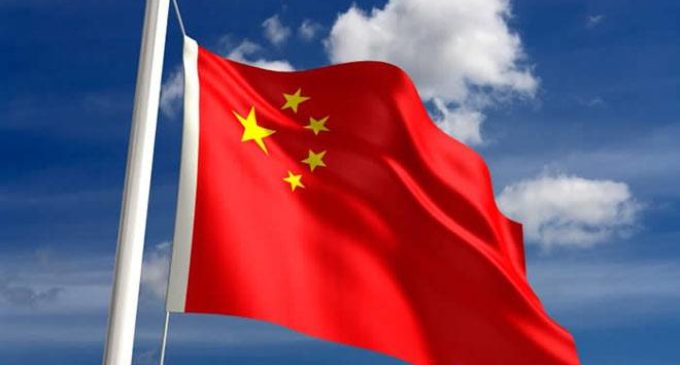China’s turbocharged repression of Uighur Muslims

China for years has curtailed the fundamental human rights, especially the freedom of religion of these ethnic minorities.
The Chinese Communist Party (CCP), led by Xi Jinping, has introduced pervasive and far-reaching restrictions on the rights of around 11 million Uighur Muslims in Xinjiang. The Chinese government for years has curtailed the fundamental human rights, especially the freedom of religion of these ethnic minorities.
The tools and methods of control employed by the Chinese government are cruel and highly personal. Any form of expression of Uighur identity, culture, and liberty is treated by the CCP as a threat to its power and is deemed as one of the three evils–separatism, terrorism, and extremism.
Two recent reports about the Chinese Communist Party’s activities in Xinjiang have shocked the world and have revealed the CCP has reached a new low by detaining and enslaving ethnic minorities in its far-flung northwestern region. The first report, released by Human Rights Watch (HRW), titled ‘China: Big Data Program Targets Xinjiang’s Muslims’, has uncovered that the Chinese government has employed ‘sophisticated’ data collections and analysis technology in Xinjiang, this system helps the Chinese official flag and identify Turkic Muslims, mainly Uighurs, and arbitrarily detain them in camps.
This new technology has given the Chinese the ability to target law-abiding and peaceful Uighurs and send them without charge or due process to these ‘political re-education centers’ for an indefinite period of time. The Chinese government has termed these centers as ‘re-education’ centers after they were discovered in a thinly veiled attempt to deflect blame and avoid international criticism.
HRW has revealed that China has developed a big data program that it uses to identify Turkic Muslims in Xinjiang for possible detention. According to the report, the big data program is called the Integrated Joint Operations Platform (IJOP), the system flags people for Chinese officials that then decide if the person must be sent to a detention camp. HRW also accessed a leaked list of over 2,000 detainees from the Aksu prefecture.
This list was used by the IJOP to select Uighurs who were to be detained. The big data program has turbocharged the brutal repression of the Turkic Muslim minority in Xinjiang. The Chinese Communist Party has adopted predictive policing programs thanks to the development of big data and using that can identify Uighurs that are Potentially dangerous to Chinese officials. The program gathers data about people, without their consent and uses that data to choose who needs to be detained.
Those that get flagged by the system are picked up by Chinese Officials and are sent to detention centers where they are held indefinitely without charge or trial. Their families and relatives are also not informed that they have been detained and are left wondering what happened.
A vast majority of people flagged by the IJOP system, that are also on the Aksu list were detained for seemingly lawful and non-violent behavior. These findings are in stark contrast to Chinese propaganda that states that ‘sophisticated’ technologies like IJOP were being used in Xinjiang to capture terrorists and violent criminals.
Under Xi Jinping, the Chinese government launched the ‘Strike Hard Campaign against violence and terrorism’ — a false flag campaign to eliminate Uighurs. As per official statements, the IJOP system aids the campaign by identifying hidden ‘violent terrorists’ and ‘criminal elements’, but the IJOP regularly flags lawful and non-violent behavior of ethnic minorities.
In recent years, authorities have stepped up their repressive practices to forcefully assimilate Xinjiang with the rest of China. The Party also wishes to sever the ties that Uighurs or other ethnic minorities may have with foreign relatives or family members.
The second report by an international think tank, Centre for Global Policy, has revealed that the CCP has been forcing ethnic minorities in Xinjiang, mainly Uighur Muslims, to pick cotton by hand in a form of modern-day slavery. These ethnic minorities during the time of their detention, or soon after their release, are forced to work in inhuman conditions for very little pay to pick cotton by hand. Xinjiang produces 85% of China’s cotton, which in turn amounts to 20% of the world’s cotton. The revelation that the vast majority of cotton that comes from China is procured through forced labor will have drastic implications for global supply chains.
Center for Global Policy’s report titled ‘Coercive Labour in Xinjiang: Labour Transfer and the Mobilization of Ethnic Minorities to Pick Cotton’, has highlighted that the Chinese government ethnic minorities in the region through coercive means to take part in handpicking of cotton. This allows the Chinese government to reduce reliance on migrant Han Chinese labor from outside Xinjiang, and also allows them to keep costs low.
Xinjiang produces more than 80% of all the cotton in China. Some of the highest quality cottons in the world come from Xinjiang and Uighur majority regions in southern Xinjiang grow most of the region’s cotton. Even though China has the capability and has deployed mechanized harvesters, the percentage varies greatly by region, and the majority of Xinjiang’s cotton is still produced in regions with low levels of mechanization. This factor combined with the need to keep production costs as low as possible incentivizes a system of low-paid ethnic minority workers.
The Chinese government also uses something called ‘labor transfer’ schemes to disrupt the lives of Uighur minorities and procure labor for cotton picking. Labor transfer refers to transferring rural workers such as farmers and pastoralists into full-time wage laborers. Primarily the people in these schemes are shifted to the manufacturing sector but also the service sector and paid seasonal agricultural work like cotton picking.
The Chinese Communist Party does not only use ethnic minorities in cotton picking for economic benefits, but another key objective that is accomplished by the Chinese government through this forced labor is also keeping ethnic minorities like the Uighurs under constant surveillance and to keep them occupied. The Chinese government can easily keep track of workers that live and work in secure compounds with dormitories. The CCP finds it much easier to control the environment within these compounds than farmers or pastoralists. The report also stated that Aksu, Hotan, and Kashgar prefectures alone mobilized close to 500,000 cotton pickers through coercive means.
The report by the Center of Global Policy managed to for the first time concretely show that ethnic minorities in Xinjiang, especially Uighurs, were coerced into becoming cotton pickers. The Party also forced minorities to work in the cotton fields as a way to better surveil and control minority communities. For the CCP it was better to have the Uighurs in the field picking cotton under the watchful eyes of their officials rather them having them freely roam around as farmers and pastoralists.
This unfathomable revelation that China has been forcing ethnic minorities in Xinjiang to become cotton pickers has profound implications that go beyond the borders of China and even Asia. The cotton sourced from China using forced labor travels to countries like India, Vietnam, Bangladesh, and Pakistan where the cotton yarn is turned into clothing.
Some countries like the United States have already started the process of having cotton exports from China-sourced through forced labor banned from their markets. Department of Homeland Security Secretary Kenneth Cuccinelli has given out a warning and said that there is a high possibility that cheap cotton goods coming out of China have been made using ‘slave labor’ and that the actions of the Chinese government constitute some of the worst human rights violations being carried out in the world today. Retail groups in the US, like the American Apparel and Footwear Association and the National Retail Federation, have welcomed the ban.
Organizations around the world have urged global fashion brands to cut ties, if any, with cotton and cotton products coming out of China and Xinjiang. Swedish fashion brand ‘H&M’ has already announced that it was ending its ‘indirect’ relationship with a cotton supplier in China over allegations of forced labor being used to source the labor.
In March 2020, the Better Cotton Initiative (BCI) suspended its licensing and assurance operations in the Xinjiang Uighur Autonomous Region due to sustained allegations of forced human labor and other human rights abuses in the region. Adidas and Lacoste have also pledged to cease all activities with suppliers and contractors that have been linked to the use of forced Uighur labor in Xinjiang.
This low level of mechanization means that Uighur Muslims and other ethnic minorities are coerced into becoming cotton pickers. The big data system developed by the CCP flags lawful Uighurs and deems them suspicious for everyday activities like reading the Quran. The Uighurs are detained without a charge or trial and are not even allowed access to lawyers or their families.
During their detention or immediately after their release the Uighurs are forced to become cotton pickers under the watchful eyes of government officials. The CCP finds it much easier to control and monitor these minorities during their time spent as cotton pickers as compared to their traditional vocation of farmers and pastoralists.
A global movement has in recent months been gaining momentum and urging international fashion brands to sever their ties with China over reports that the Chinese government used slave labor. Brands like H&M, Adidas, and Lacoste have already pledged to cut ties with suppliers in China that have been linked to the use of Uighur slave labor.






There are no comments at the moment, do you want to add one?
Write a comment